News
+ more news
Galapagos Ocean Acidification Summer School, 19-28 August 2018, Galapagos, Ecuador
Monday, 14 May 2018
We would like to let you know that applications are now open for the 2018 Galápagos Ocean Acidification Summer School which we have informed you about in our latest issue of the IOCCP Conveyor. The course will be held at the Charles Darwin Research Station, Puerto Ayora, Galápagos, Ecuador on 19-28 August 2018. The course is co-organized by IOCCP SSG member and 2018 SCOR Visiting Scholar Cristian Vargas. The aim of the course is to use natural CO2 gradients around Roca Redonda volcanic CO2 vent site to conduct in situ observations using a wide range of techniques for long-term capacity building (chemistry, biology, geology, etc) and data collection. This will be an advanced training course with a combination of theoretical training and field expedition.
The deadline for applications is 4 June 2018. To apply, please fill out the ![]() attached application form and send it to the course organizers together with a letter of intention and a CV. For more information on the course objectives, target participants, lecturers and organizers, please see the attached
attached application form and send it to the course organizers together with a letter of intention and a CV. For more information on the course objectives, target participants, lecturers and organizers, please see the attached ![]() course flyer.
course flyer.

European Ocean Observing System (EOOS) Stakeholder Consultation on the draft strategy and implementation plan
Wednesday, 25 April 2018
On 25 April, the European Ocean Observing System (EOOS) stakeholder consultation is launched to collect feedback on the draft strategy and implementation plan for 2018-2022. EOOS is a coordinating framework designed to align and integrate Europe's ocean observing capacity in the long-term; to promote a systematic and collaborative approach to collecting sustained information on the state and variability of our seas; and to underpin sustainable management of the marine environment and its resources. Stakeholder co-design and engagement are key to developing EOOS as a truly integrated and sustained ocean observing framework. The benefits of EOOS will likely span world-wide as its vision, guiding principles and proposed implementation framework are complementary to those of the Global Ocean Observing System (GOOS). Therefore, we encourage the global marine biogeochemistry observationalist community to become part of this consultation process.
The survey will close on 15 June 2018. To read the EOOS draft strategy and implementation plan and submit your feedback please go to the consultation page: http://www.eoos-ocean.eu/consultation-2018/.

Synthesis and intercomparison of ocean carbon uptake in CMIP6 models Working Group Workshop, 8-9 Dec 2018, Washington, DC, USA
Tuesday, 24 April 2018
We would like to let you know that applications are now open to attend a community workshop on "Synthesis and intercomparison of ocean carbon uptake in CMIP6 models." The workshop organized by US Ocean Carbon & Biogeochemistry (OCB) will be held December 8-9, 2018 in Washington, DC, USA, just before the Fall 2018 American Geophysical Union (AGU) Meeting. Climate and Earth System Modeling Centers around the world are currently preparing their state of the art models to participate in the 6th phase of the Coupled Model Intercomparison Project (CMIP), which will inform the International Panel on Climate Change (IPCC) 6th Assessment. Each center is planning to perform ocean carbon experiments in the boreal spring/summer/fall 2018 time frame. This activity will complement existing coordination of European modeling centers by building lines of communication between the US observational and analysis communities and the various contributing modeling centers in the US (NASA/GISS, NCAR/CESM, and NOAA/GFDL), Canada (CCCMA), and Australia (CSIRO). The organizers plan on reserving ~20% for attendees to be in early career (PhD - tenure track) stage.
Deadline for submitting applications: 13 July 2018. To apply, follow the link HERE.

Call for Review of 2018 SCOR Working Group Proposals
Thursday, 19 April 2018
Nine working group proposals that have been submitted to the SCOR Secretariat for consideration at the 2018 SCOR Annual Meeting are available on the SCOR Web site. The Executive Committee will be very grateful for comments from SCOR National Committees, individuals, and interested organizations to assist in the review of these proposals. This is, in fact, one of the most important ways in which SCOR’s National Committees and cooperating organizations can provide input to SCOR on scientific priorities. SCOR WG proposal reviews are due to Ed Urban, Executive Director of SCOR, before 1 August 2018. Decisions on which group(s) will be funded will be made at the SCOR annual meeting on 4-7 September 2018 in Plymouth, UK.

Invitation to an OceanBestPractices Online Meeting, 8 May 2018
Wednesday, 18 April 2018
On behalf of the AtlantOS/NSF/IOC Best Practice Working Group, we would like to invite you to join an online meeting designed to bring the ocean observing community up-to-date with latest developments, and discuss next steps and issues with regard to the OceanBestPractices System. The 1-hour meeting will take place on Tuesday 08 May 2018 @ 07:00 PDT, 10:00 EDT and 16:00 CEST. As you may be aware, through participation in the first Ocean Best Practice Workshop in Paris last year or other fora, there has been good progress in the IODE Best Practices repository (http://www.oceanbestpractices.net) and a linked research topic in a peer review journal. A vital part of the implementation process is to ensure community engagement, which in turn requires wide understanding and acceptance of the system's added value. If you're interested in participating in the meeting, please email the Working Group at This email address is being protected from spambots. You need JavaScript enabled to view it.. Connection details to the meeting will be circulated to those participating.

Global Ocean Data Analysis Project (GLODAP): new web page is now live!
Tuesday, 17 April 2018
We would like to inform you that the new Global Ocean Data Analysis Project (GLODAP) website is now live. If you're looking for GLODAP data in various formats, want to know who the GLODAP Reference Group is, or want to find out more about GLODAP and its impact, check out the website at https://www.glodap.info. The new web page is built on the same framework and is meant to serve a similar purpose as the SOCAT web page (www.socat.info). This should make many of you feel right at home from the start. If you're keen on receiving timely updates on GLODAP-related news, follow GLODAP on twitter (#GLODAP).
The GLODAP website is hosted by the Bjerknes Climate Data Centre and the ICOS Ocean Thematic Centre (Bergen, Norway). If you see any room for improvements or have trouble with GLODAP data, please do not hesitate to let the team know either by emailing This email address is being protected from spambots. You need JavaScript enabled to view it., or by filling out the contact form on the website.
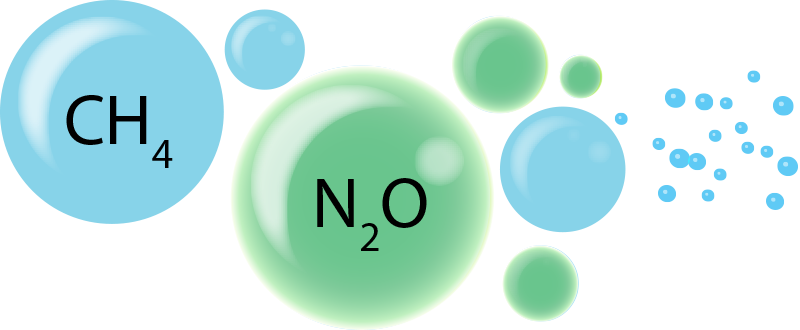
US OCB Oceanic Methane & Nitrous Oxide Workshop, 28-31 Oct 2018, Lake Arrowhead Conference Center, CA, USA
Wednesday, 28 March 2018
We would like to inform you that the application for the US Ocean Carbon & Biogeochemistry workshop on "Oceanic Methane and Nitrous Oxide: The present situation and future scenarios" is now open. The workshop will take place 28-31 October 2018 at the University of California Los Angeles (UCLA) Lake Arrowhead Conference Center in California, USA. This three-day workshop builds off a series of global inter-comparison exercises of nitrous oxide and methane. It will cover chemical analysis, microbial metabolism, and our observational and predictive capabilities, as well as address questions to help determine the future directions of methane and nitrous oxide measurements in the global oceans.
Participation in the workshop is open to everyone and attendees will be decided based on application. You can submit your application electronically at: https://web.whoi.edu/methane-workshop/application/. All documents including planning papers, agendas, and presentations will be made available from the workshop website over the forthcoming months.
Deadline to apply is 1 June 2018.
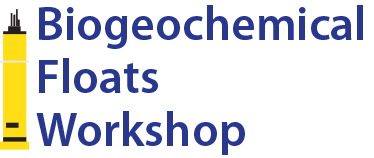
Biogeochemical Profiling Float Workshop, July 9-13, 2018, Seattle, WA, USA
Monday, 26 March 2018
We would like to inform you that registration is open for the Biogeochemical Profiling Float Workshop organized by US Ocean Carbon & Biogeochemistry (OCB) program, to be held July 9-13, 2018 at the University of Washington (Seattle, WA, USA). The workshop will bring together potential users to discuss biogeochemical profiling float technology, sensors, and data management, to begin the process of the intelligent design of future scientific experiments.
The workshop registration is first come, first served so please register here as soon as possible.
April 13 update: Registration is full, please contact This email address is being protected from spambots. You need JavaScript enabled to view it. to be added to the waitlist.
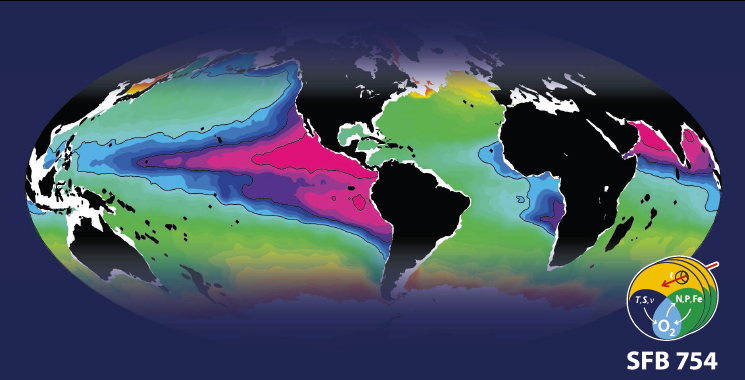
Ocean Deoxygenation Conference (SFB 754), 3-7 Sep 2018, Kiel - abstract submission deadline: 31 March 2018
Friday, 23 March 2018
We would like to draw your attention to the fast approaching abstract submission deadline for the "Ocean Deoxygenation Conference" that will take place in Kiel, Germany, on 3-7 September 2018 (https://conference.sfb754.de/event/1/). The conference will be hosted by the Collaborative Research Center 754 "Climate-Biogeochemistry Interactions in the Tropical Ocean". The conference will bring together the global scientific community working on Ocean Deoxygenation and aims to identify drivers and consequences of ocean deoxygenation in the past, present and future.
Abstract submission is open and will close on 31 March 2018. Registration closes on 31 July 2018.
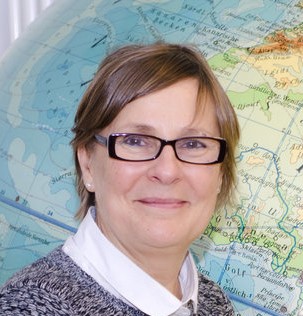
New IOCCP Theme and SSG Expert: Véronique Garçon will lead our Oxygen activities
Thursday, 22 March 2018
We are very happy to inform you about the next step that IOCCP is taking towards better serving the global ocean biogeochemistry observing community. As Global Ocean Observing System's Biogeochemistry Panel we are expected to gradually expand marine biogeochemistry coordination and communication efforts from carbon-related parameters onto all Biogeochemistry Essential Ocean Variables (http://www.ioccp.org/index.php/foo). The IOCCP SSG decided that based on the current needs of our community and in line with the expanding scope of IOCCP's mission we will devote a portion of our resources to activities related to Oxygen observations.
We are very excited to tell you that our SSG Expert for Oxygen will be Véronique Garçon! Véronique, who is a CNRS Senior Scientist at LEGOS (Toulouse, France) is not only one of the most experienced scientists working on Oxygen and coupled systems observations globally but also a well-established leader in national (IFREMER, CNRS, French Navy), regional (EGU) and international (SOLAS, SCOR, GO2NE, VOICE) coordination efforts. We would like to utilize Véronique's energy and leadership to improve the global coherence of sustained oxygen observations – a long anticipated expansion of our portfolio driven by our Terms of Reference.
We will soon share more details about our already ongoing as well as planned activities in this arena. In coming months we will also introduce Véronique in one of our communications, but her short bio is already available on our Contacts page.
The IOCCP promotes the development of a global network of ocean carbon observations for research through technical coordination and communication services, international agreements on standards and methods, and advocacy and links to the global observing systems. The IOCCP is co-sponsored by the Scientific Committee on Oceanic Research and the Intergovernmental Oceanographic Commission of UNESCO. Read more…
Calendar
|
|
IOCCP meetings, IOCCP-related meetings as well as events related to a wider scope in marine biogeochemistry. |



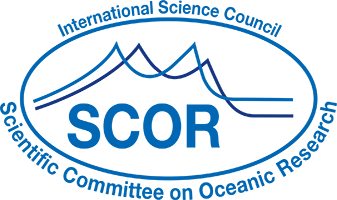

 Please wait...
Please wait...